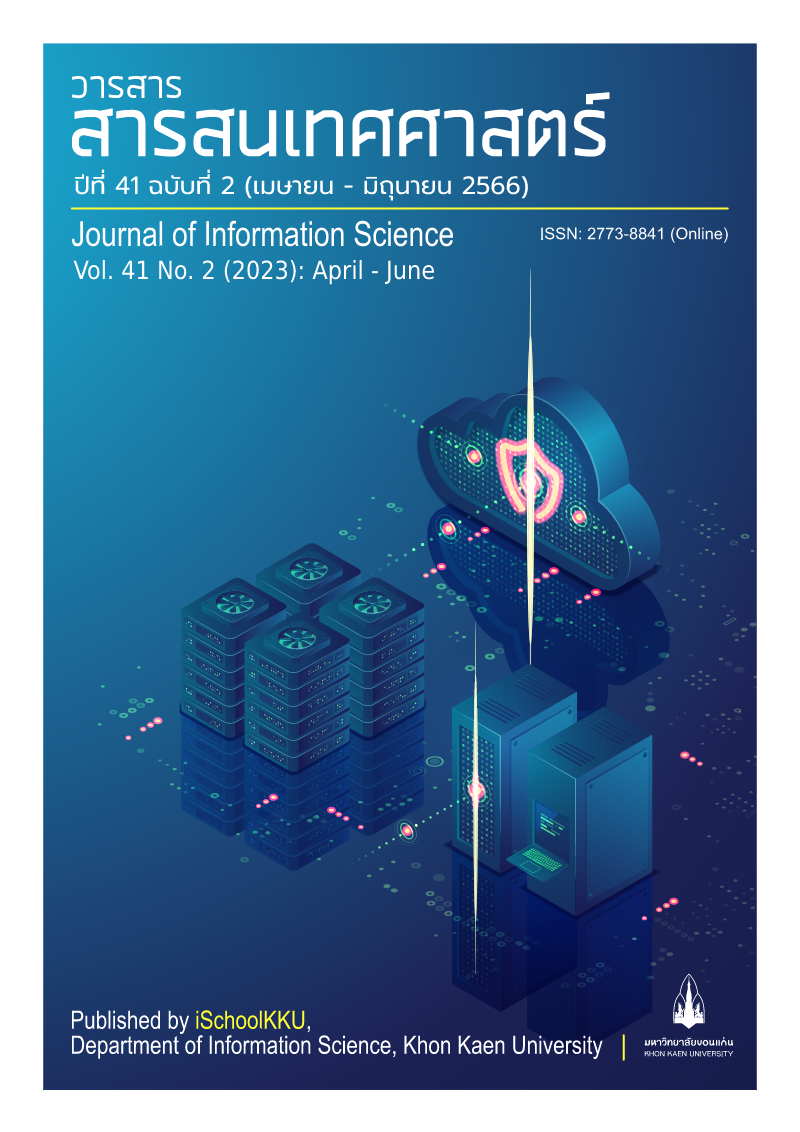The Development of Web Application for Reporting Individual Exam Scores for Chiang Mai University Students
DOI:
https://doi.org/10.14456/jiskku.2023.9Keywords:
Web application, Exam scores, IndividualAbstract
Purpose: The purpose of this research is to create a web application for reporting individual exam scores for Chiang Mai University students and ensuring compliance with the Personal Data Protection Act B.E.2562
Methodology: This research involved 5 steps: 1) literature review, 2) system analysis and design, 3) system development, 4) functional testing, and 5) functional evaluation. The system was tested by 2,050 Chiang Mai University undergraduate students.
Findings: Exam score announcements that reveal personal information, such as the student's name, student ID, or other information that can be traced to the owner are considered personal information. Public disclosure of personal information to the public requires the owner’s consent. The developed web application allows Chiang Mai University students to access their individual exam scores conveniently via the Internet on computers and smartphones. It reduces paper usage for score reports and ensures compliance with the Personal Data Protection Act B.E. 2562. User satisfaction was found to be at a good level in terms of ease of use, data integrity, personal data protection, and overall functionality.
Applications of this study: The findings of this research can be applied to report exam scores of various departments or faculties. It can also be extended to other types of reporting, such as homework scores or employee recruitment examination results, to ensure compliance with the Personal Data Protection Act B.E. 2562.
Downloads
References
Bunaramrueang, P. et al. (2018). Thailand data protection guidelines 1.0. (In Thai). Bangkok: Chulalongkorn University.
Information Technology Service Center, Chiang Mai University. (2015). CMU IT Account. Retrieved from https://account.cmu.ac.th/
Information Technology Service Center, Chiang Mai University. (2016). CMU OAuth. Retrieved from https://oauth.cmu.ac.th/
Intharawiset, T. et al. (2019). Technology and Innovation for Instructional in Digital Ages. (In Thai). Journal of Humanities, Social Sciences and Arts, 12(6), 478 – 494.
Khawsanit, D. (2018). Legal measures in private data protection: case study in finance and banking of commercial bank. (In Thai). Master thesis in Law, Pridi Banomyong Faculty of Law, Dharakij Pundit University.
Ongiem, A. & Vichitvejpaisal, P. (2018). Validation of the tests. Journal of Thai J Anesthesiol 2018, 44(1), 36 – 42.
Royal Thai Government Gazette. (2019). The personal data protection act B.E. 2562 (2019). (In Thai). Bangkok: Publisher of the Cabinet and the Government Gazette.
Silanoi, L. & Chindaprasert, K. (2018). The use of rating scale in quantitative research on social sciences, humanities, hotel and tourism study. (In Thai). Journal of Management Science, Ubon Ratchathani University, 8(15), 112 – 126.
Srisa-ard, B. (2002). Basic research. (7th ed.). Bangkok: Suweeriyasan.
Wongsab, A. (2014). Development of online educational reporting system for benchamarachuthit ratchaburi schools. (In Thai). Master thesis in Arts Program in Educational Informatics, Graduate School, Silpakorn University.








